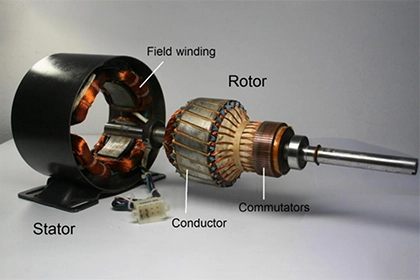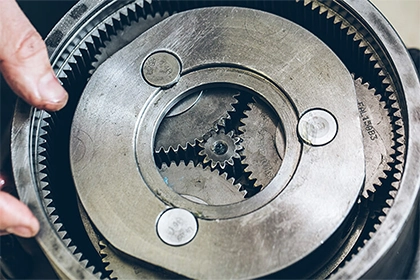
What is stator in induction motor?
The stator is the stationary part of an induction motor that houses the windings that generate a rotating magnetic field. This rotating field induces current in the rotor, causing it to rotate and produce mechanical power.
The stator of an induction motor is the stationary part of the motor that contains the windings that produce the magnetic field. The stator is typically made up of a steel frame that supports a series of laminated steel plates. The windings of the stator are wound around the laminated steel plates, and these windings are connected to the power supply.
When an induction motor is supplied with AC power, the stator's windings produce a rotating magnetic field. This rotating magnetic field is used to induce a current in the rotor of the motor, and the current flowing through the rotor produces its own magnetic field. The interaction between the stator's magnetic field and the rotor's magnetic field causes the rotor to rotate, which in turn drives the shaft of the motor.
The stator of an induction motor is typically made up of a three-phase winding, which means that it contains three separate windings that are connected to the three phase AC power supply. The three-phase winding of the stator is arranged so that the magnetic fields produced by each phase are 120 degrees out of phase with each other. This arrangement of the stator windings produces a smooth and balanced rotating magnetic field, which is essential for the efficient operation of the motor.
In addition to the windings that produce the rotating magnetic field, the stator of an induction motor may also contain other components, such as a starting winding or a starting capacitor. These additional components are used to help start the motor, and they are typically disconnected from the circuit once the rotor has started.
In summary, the stator of an induction motor is the stationary part of the motor that contains the windings that produce the magnetic field. The stator is typically made up of a three-phase winding, which is connected to the three phase AC power supply. The rotating magnetic field produced by the stator's windings is used to induce a current in the rotor of the motor, and the interaction between the stator's magnetic field and the rotor's magnetic field causes the rotor to rotate.



Leave a Comment